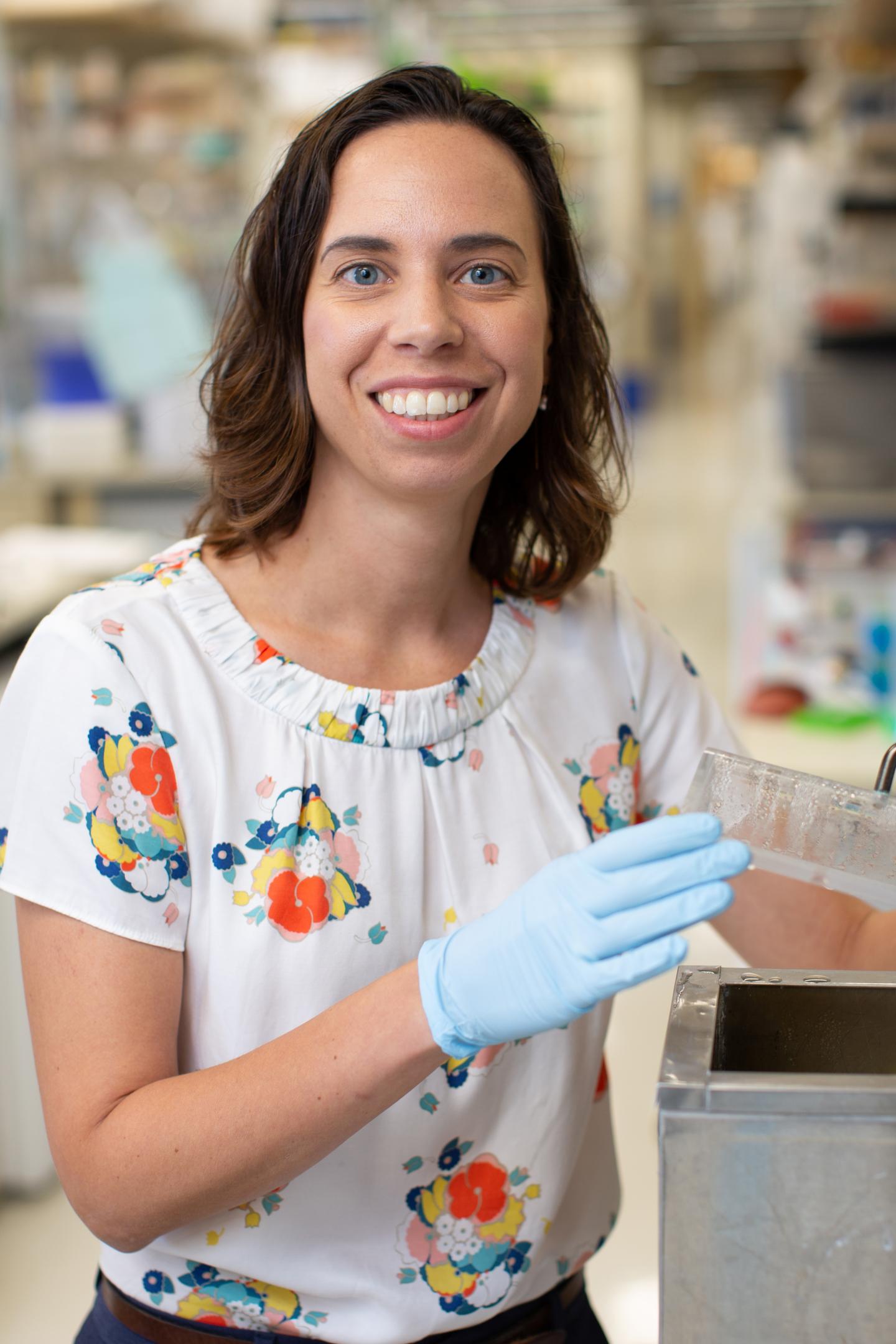
IMAGE: Diana Hargreaves, an assistant professor in Salk’s Molecular and Cell Biology Laboratory, has been named a 2019 Pew-Stewart Scholar for Cancer Research as part of a partnership between the Pew… view more
Credit: Salk Institute
LA JOLLA – (June 14, 2019) Diana Hargreaves, an assistant professor in Salk’s Molecular and Cell Biology Laboratory, has been named a 2019 Pew-Stewart Scholar for Cancer Research as part of a partnership between the Pew Charitable Trusts and the Alexander and Margaret Stewart Trust. The scholars each receive $300,000 over four years to support their work focused on a better understanding of the causes, diagnosis and treatment of cancer.
“Diana is pushing the boundaries of cancer research by studying the protein complexes that organize our DNA, which are frequently mutated in cancer,” says Salk President Rusty Gage. “We are excited and proud to have her groundbreaking work recognized by the Pew Charitable Trusts and the Alexander and Margaret Stewart Trust.”
Hargreaves, who holds the Richard Heyman and Anne Daigle Endowed Developmental Chair, is one of the faculty involved in the Salk Conquering Cancer Initiative, aiming to uncover new insights into the deadliest cancers. She studies epigenetic regulators, proteins that work to make specific regions of the genome more or less accessible for gene transcription. Unlike our fixed genome, the epigenome is dynamic, allowing cells to respond to developmental and external environmental cues. For example, she investigates a subunit of an epigenetic regulator (the SWI/SNF complex) called ARID1A, which can be mutated in solid tumors such as in ovarian, bladder and colorectal cancer. By understanding the proteins’ roles in driving cancer, she aims to find ways to reverse tumor progression.
Hargreaves’ work extends to include many different angles of cancer initiation and progression. As a Pew-Stewart Scholar, she proposes to study the role of the SWI/SNF complex and other epigenetic regulators in controlling the activation of immune cells that infiltrate cancers. For instance, she seeks to examine the possibility of reprogramming tumor-associated macrophages (TAMs) to alert the immune system of a tumor instead of promoting the spread of cancer. Her studies have the potential to enhance the current state of cancer immunotherapy by uncovering a new set of therapeutic targets designed to boost immune system defenses against tumors.
The Pew-Stewart Scholars Program for Cancer Research is a national initiative designed to support promising early career scientists whose research will accelerate discovery and advance progress to a cure for cancer. The Stewart Trust has invested in innovative, cutting-edge cancer research and scientists for over 15 years. Through this partnership, The Pew-Stewart Scholars for Cancer Research have tremendous potential to solve some of cancer’s weightiest challenges.
###
About the Trusts:
The Pew Charitable Trusts is driven by the power of knowledge to solve today’s most challenging problems. Learn more at pewtrusts.org.
The Alexander and Margaret Stewart Trust is a charitable foundation supporting nonprofit organizations that research, treat, and prevent cancer and pediatric illnesses. Learn more at stewart-trust.org.
About the Salk Institute for Biological Studies:
Every cure has a starting point. The Salk Institute embodies Jonas Salk’s mission to dare to make dreams into reality. Its internationally renowned and award-winning scientists explore the very foundations of life, seeking new understandings in neuroscience, genetics, immunology, plant biology and more. The Institute is an independent nonprofit organization and architectural landmark: small by choice, intimate by nature and fearless in the face of any challenge. Be it cancer or Alzheimer’s, aging or diabetes, Salk is where cures begin. Learn more at: salk.edu.
Disclaimer: AAAS and EurekAlert! are not responsible for the accuracy of news releases posted to EurekAlert! by contributing institutions or for the use of any information through the EurekAlert system.

